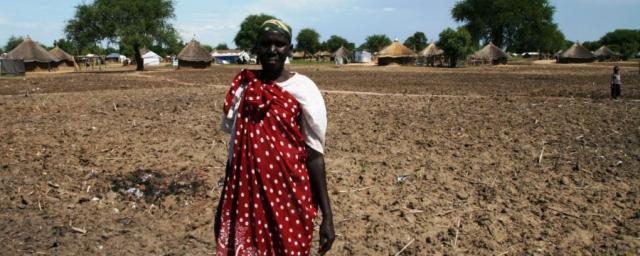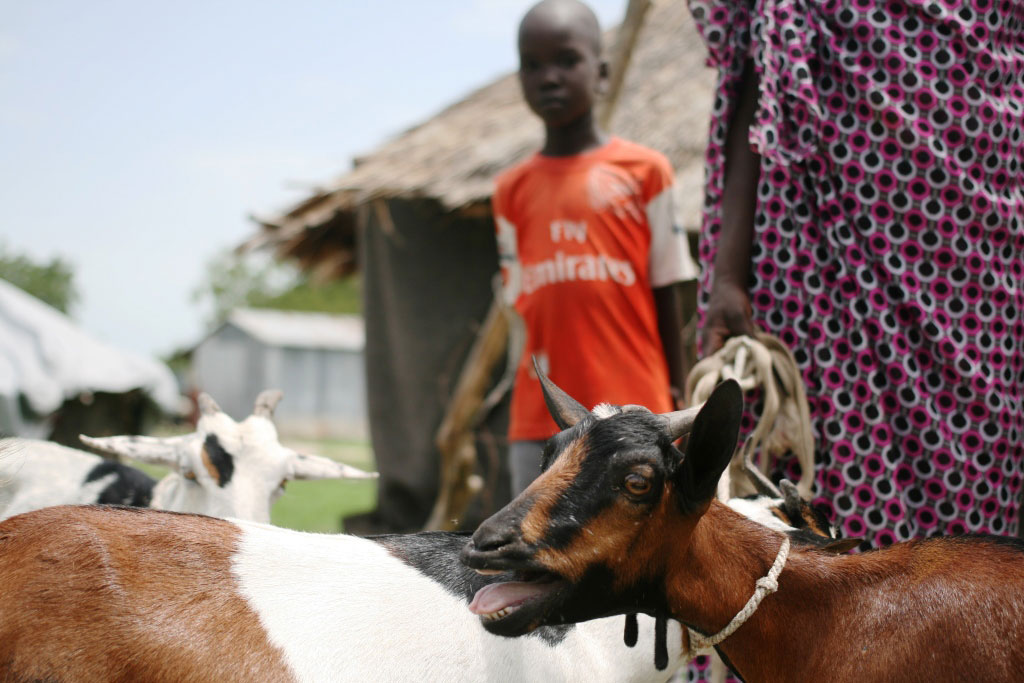
21 months of war in South Sudan have seen two million people driven away from their homes, their property looted or destroyed. Even in the areas where there is less fighting, families are still struggling with high food prices, forced on many occasions to sell their assets to make ends meet. Unpredictable weather is making it harder for returning farmers to cultivate their land. According to the latest Integrated Phase Classification (IPC), almost 4 million people are facing food insecurity, twice as many as last year.
Like many people Ayen and David fled their homes and returned to find their livelihoods destroyed, these are their stories:
46 year old David Thor, a farmer since 2007, fled his home with no possessions along with his wife, their four children and 13 of his brother’s children. "I was somebody. All my houses were burnt, all my livestock gone," he said, his narrowed eyes locked firmly on his mud-stained gumboots. "Now I have nothing. My happiness was ruined by those who are fighting."
Thousands of residents in Bor, Jonglei state in South Sudan, experienced the terrifying events of April 2014. For many of the survivors their only chance was to flee into nearby swamplands before they could reach a camp for displaced people across the river. It was weeks before they could return home and when they did they found a city violently hushed by war; their homes and livelihoods destroyed.
 Goats being distributed as part of Oxfam’s income generating activities in South Sudan. Nick Lacey/Oxfam.
Goats being distributed as part of Oxfam’s income generating activities in South Sudan. Nick Lacey/Oxfam.
Ayen Nhial has a similar story, this time last year she was pregnant and hiding with six other children hiding in the swamps. "If I had stayed [at home], we would all have died," she says, her frequent hand gestures seemingly jolting back memories of the night that fighting engulfed her hometown.
"I had everything I needed- goats, cattle, food, I had a good life. Then the guns came and I lost everything." Oxfam is working with displaced families and their hosting communities to identify alternative income-generating activities such as vegetable farming or small scale businesses. Ayan pauses from retelling her story and looks sideways into her garden, where a few rows of maize stocks stand tall and then she smiles, "But now, see, I am back at my own home with my own things."
Oxfam has been working in small groups with over 1,200 families, to help recreate livelihoods and a community. Elizabeth Kong, who heads one of the farmers’ groups, says that for women widowed by the war "their produce has become their protection."
"When there is no man in the house to bring food and money, things are difficult," she said. "But now the women can harvest, sell and take care of the children. We have a chance now to go back to normal so that is all we will do. We don’t need to hear the guns again."
As the country pushes along the long road to real and lasting peace and reconciliation, South Sudanese like Ayen look forward to a better future. "When disaster comes and goes," Ayen concludes, "you are sad and stressed. But when it passes, you need to think of how to continue with life and be happy. You have to try."